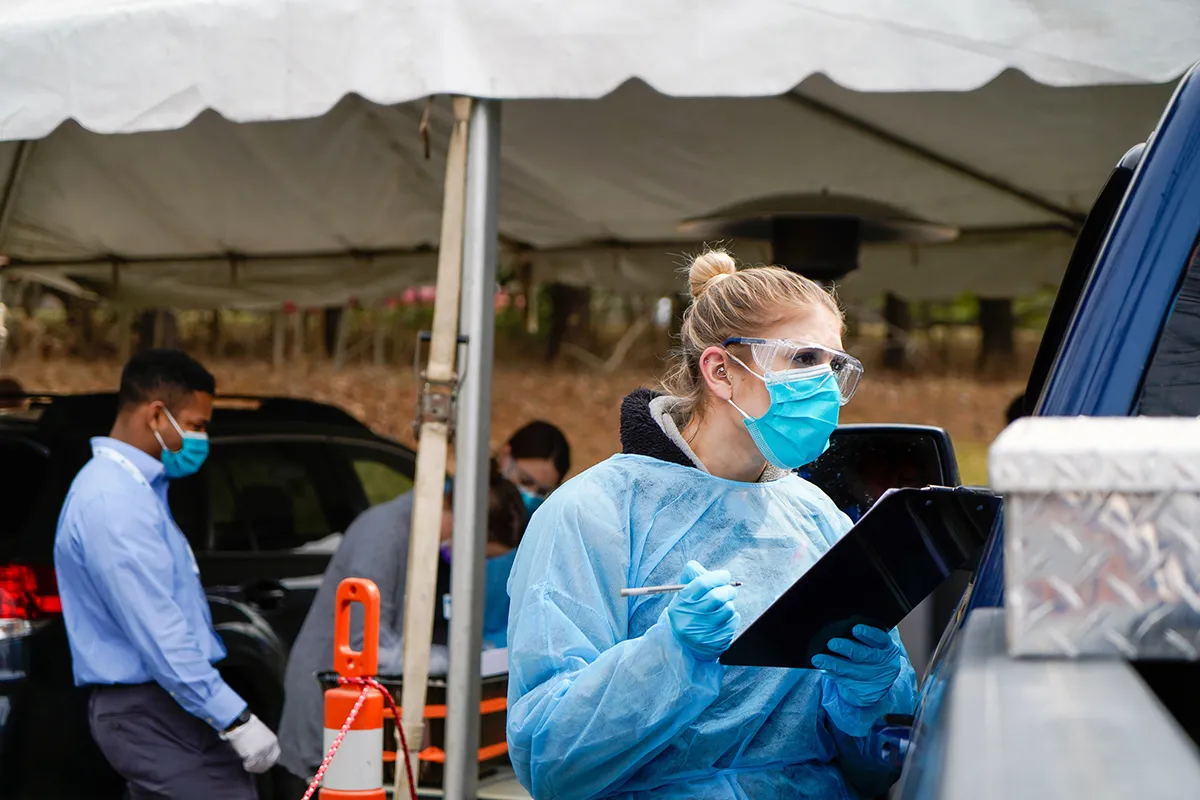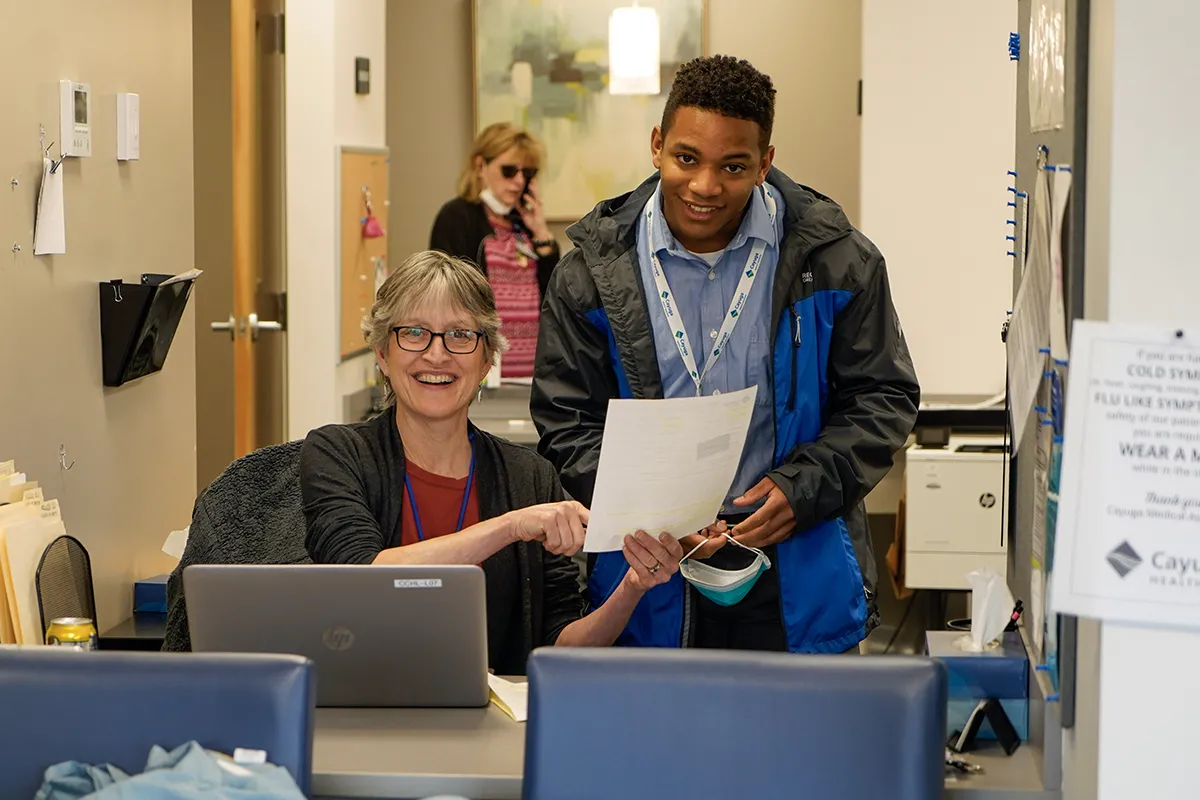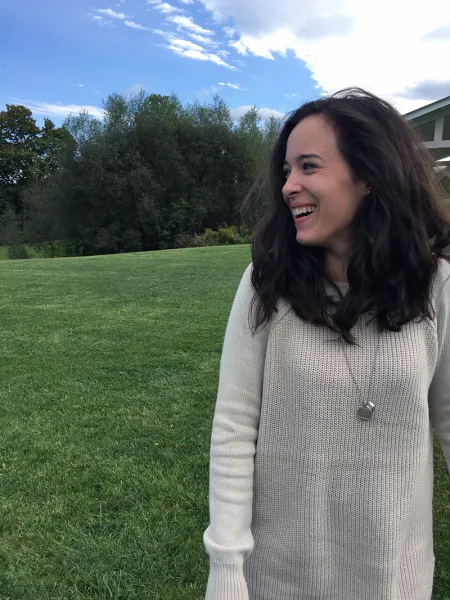Anna Rosenblatt ’12, a practice facilitator for Cayuga Health Partners, was at home on March 14 when a message came in from work: “Can you come in?” That was the text.
The context was that the spread of COVID-19 meant mobile sampling sites were needed to flatten the curve. In plain text, Cayuga Health needed to finalize the planning for and opening of a drive-through testing site for Ithaca and the surrounding communities. Rosenblatt’s text came on Saturday, and the first patient/car rolled through the sampling site on Monday. There, proud but nervous, was Rosenblatt.
Asked whether she had done anything like this before, Rosenblatt laughed before she responded, “Well, I have definitely never set up a giant pandemic testing site before, no.” While she didn’t know all the specifics of the site, she knew what process was needed. Much of the preliminary planning had already been done.
“What was left was just process-mapping on paper, so writing out exactly what steps would be accomplished in what order and which could be kind of flip-flopped as long as they were completed. Being able to do that workflow mapping, that’s what I was able to immediately contribute.”


